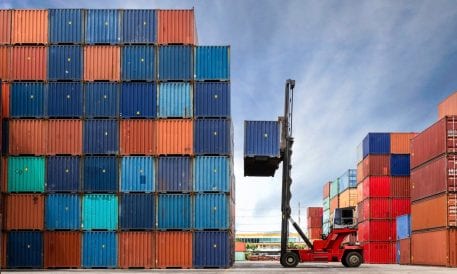Supply chain delays are impacting the restocking activities of merchants, with Crocs Inc. and Steve Madden Ltd. leaders saying in their Q3 reports that they were impacted by shipping bottlenecks in moving products to shops and distribution hubs, The Wall Street Journal reported.
In the spring and summer, container shipping lines called off hundreds of voyages amid pandemic-fueled lockdowns that negatively impacted economies and international trade that dried up.
Demand formidably returned during the summer once companies opened again and merchants quickly worked to replenish their stock to have merchandise set to go for a desired rally in the autumn.
“There was sort of a limited supply or a challenge getting containers and vessels, which slowed things down overseas,” Steve Madden Chief Executive and Chairman Ed Rosenfeld said on the earnings call, as per WSJ.
The executive also noted that operations at the firm’s storage facilities and those of wholesale clients “have been slower just due to some labor shortages and other disruption due to Covid.”
In August, international container shipping volumes were up 34.2 percent as compared to February, WSJ reported, citing Container Trade Statistics. The volumes have brought a tide of containers into American ports.
The Hackett Associates and National Retail Federation Global Port Tracker report registered the highest volume in August on the books going back to 2002.
The news comes as accelerating demand for durable products such as appliances and vehicles is fueling manufacturing at facilities in Europe and Asia.
Purchasing managers for manufacturing firms point to an increasing gap between consumer demand for merchandise over in-person services.
India is heading up the rise in manufacturing, registering its largest increase in activity in one month for over a decade. Manufacturing facilities in South Korea and Thailand have also registered a jump in activity for the first month this year.
Germany is heading up the rally in Eurozone manufacturing facilities.


